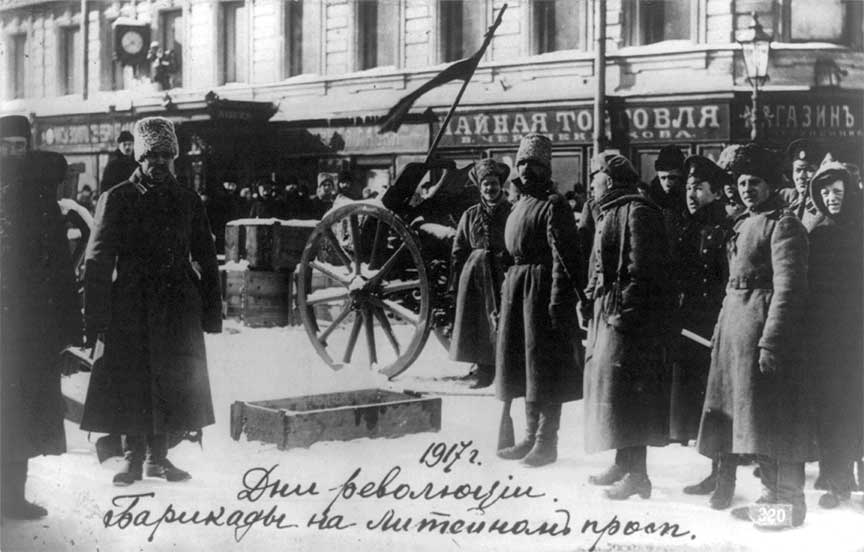Russian Revolution Part I

Petrograd 1917
The February Revolution (which actually took place in March) began as a series of riots protesting food shortages and the ongoing unpopular war. Czar Nicholas II ordered the Dumas (the Russian Parliament) disbanded. Members of the Dumas refused to obey the dissolution order.
When Nicholas called on the army to put down the rioters, the army mutinied. Nicholas II was forced to abdicate. A provisional government was formed, the most influential member being Alexander Fyodorovich Kerensky..
The situation in Russia was deteriorating rapidly. On March 3, 1917, a strike broke out at the Putilov munitions factory in Petrograd. The strike soon became a challenge to the Tsar rule, when three days of riots took place. Quickly there were food shortages, and people began to fear the worst. By March 9, 200,000 to 300,000 workers were striking, and marchers were yelling down with the autocracy down with the Tzar. They were ordered by troops to disperse, and when they did not, three were killed. On March 10, the Tzar ordered the suppression of the riots. He telegraphed," I order you to stop tomorrow the disorders in the capital, which are unacceptable in this difficult time of war with Germany and Austria." The next day the capital was occupied by troops—the troop's opened fire on the crowds that refused to disperse. The troop's bullets killed forty people in the crowd. Quickly matters went from bad to worse, and soldiers begin to fire and each other. At the same time, civilians quickly obtained arms.
The Tzar was warned that unless he took action, he would lose control. On March 12, the Tzar tried to head back to the capital, but the rail lines were blocked, and before long, the troops in the capital and the surrounding towns joined the protesters. Almost all the army commanders telegraphed the Tzar and suggested that he abdicate. Bowing overwhelming pressure on March 15, he resigned. He announced that his brother Grand Duke Michael would replace him. Michael refused, and the long reign of the Romanovs came to an end.
The Duma established a provisional government headed by Prince Lvov. The new government pledge to continue the war against the Germans. It hoped To convene a constitutional convention to create a democracy in Russia, but that was not to be.
 >
>